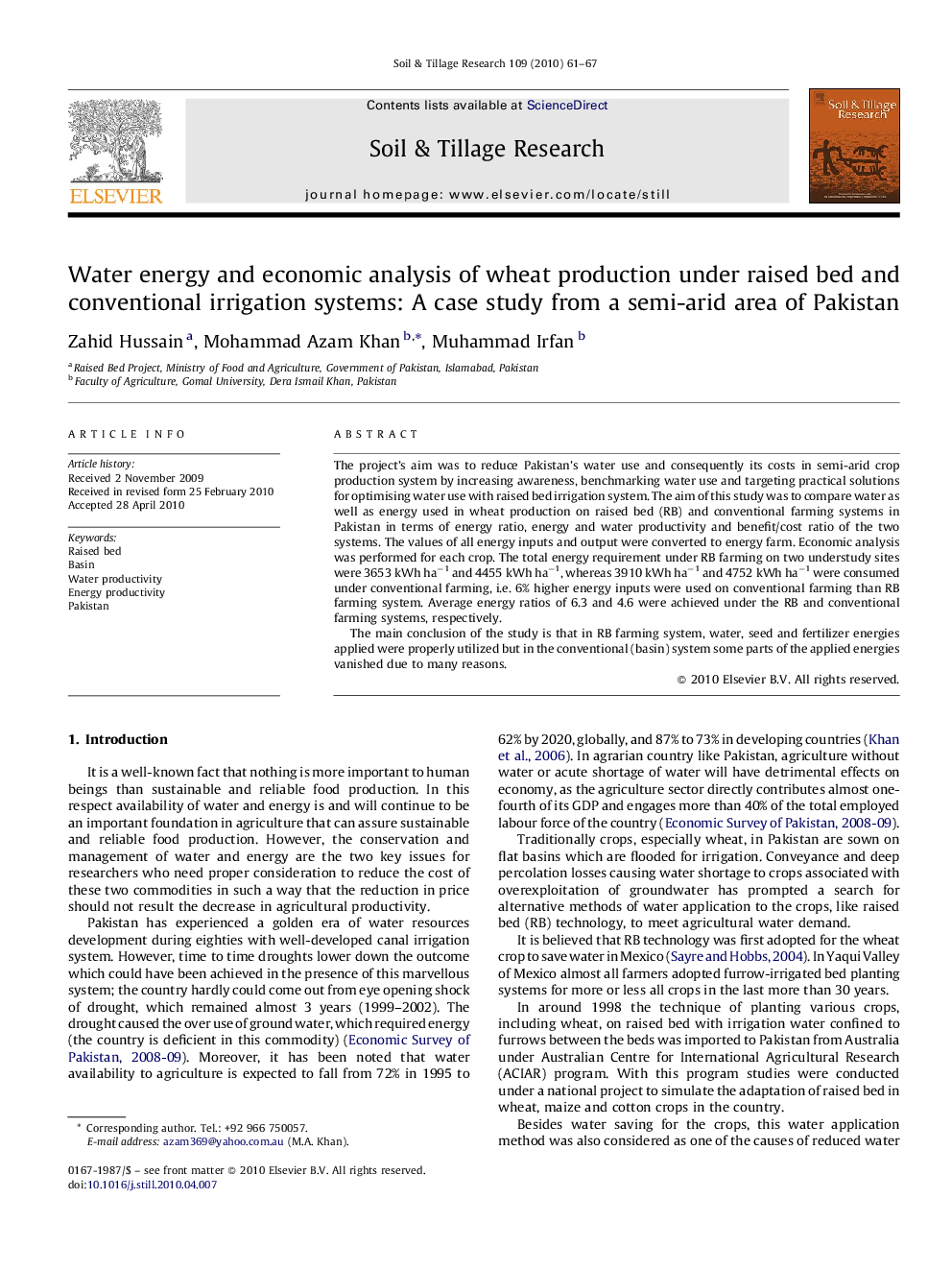| Article ID | Journal | Published Year | Pages | File Type |
|---|---|---|---|---|
| 306216 | Soil and Tillage Research | 2010 | 7 Pages |
The project's aim was to reduce Pakistan's water use and consequently its costs in semi-arid crop production system by increasing awareness, benchmarking water use and targeting practical solutions for optimising water use with raised bed irrigation system. The aim of this study was to compare water as well as energy used in wheat production on raised bed (RB) and conventional farming systems in Pakistan in terms of energy ratio, energy and water productivity and benefit/cost ratio of the two systems. The values of all energy inputs and output were converted to energy farm. Economic analysis was performed for each crop. The total energy requirement under RB farming on two understudy sites were 3653 kWh ha−1 and 4455 kWh ha−1, whereas 3910 kWh ha−1 and 4752 kWh ha−1 were consumed under conventional farming, i.e. 6% higher energy inputs were used on conventional farming than RB farming system. Average energy ratios of 6.3 and 4.6 were achieved under the RB and conventional farming systems, respectively.The main conclusion of the study is that in RB farming system, water, seed and fertilizer energies applied were properly utilized but in the conventional (basin) system some parts of the applied energies vanished due to many reasons.
